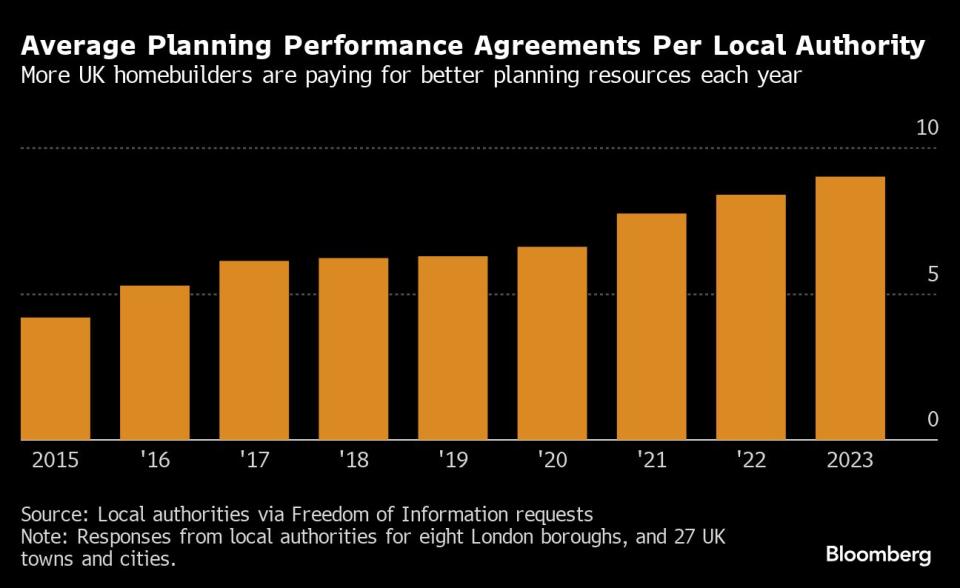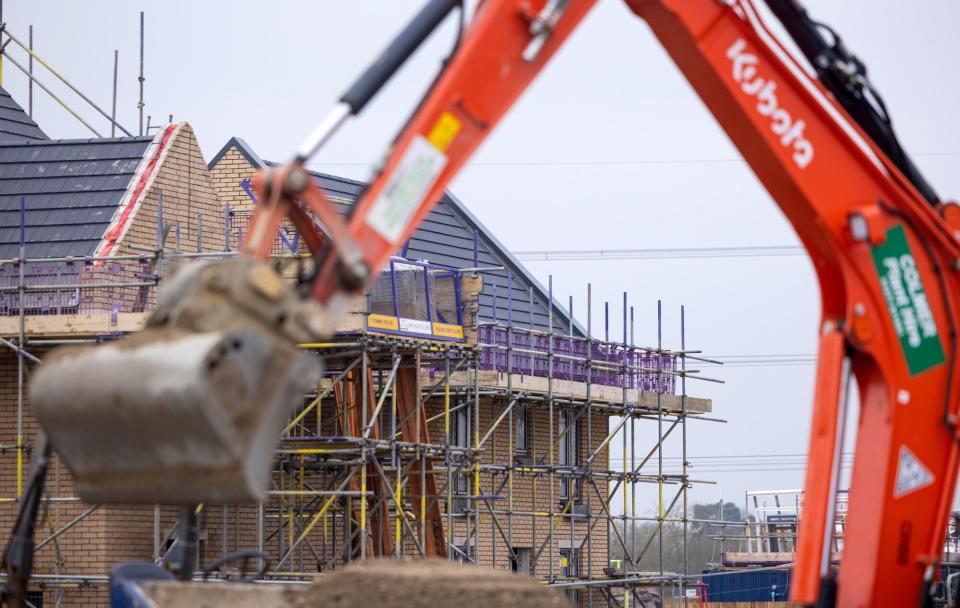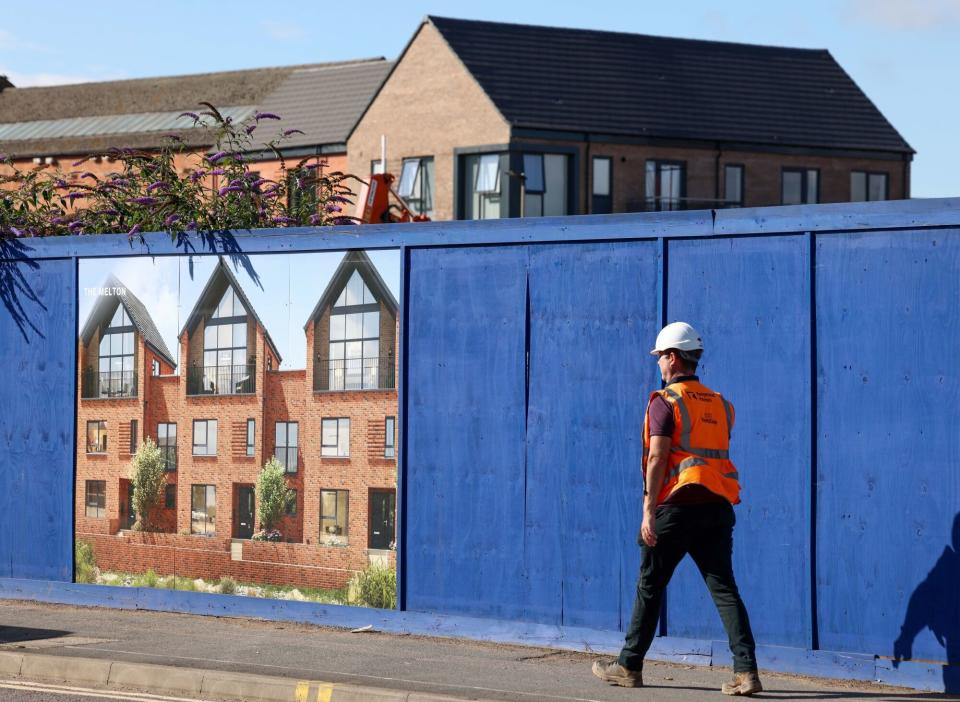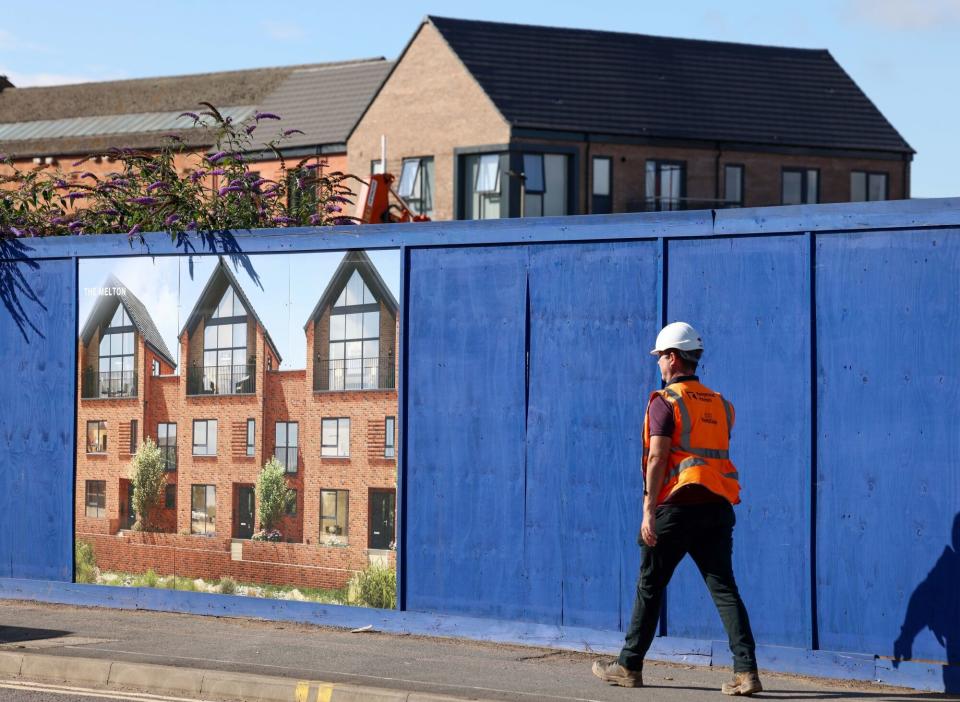UK Homebuilders Splash Cash in Bid to Bypass Busted Planning System
(Bloomberg) -- Britain’s biggest developers are increasingly turning to a costly service to try to sidestep delays in the country’s broken planning system, a trend that underlines the extent of the challenge awaiting the new Labour government as it looks to make reforms.
Most Read from Bloomberg
Saudis Warned G-7 Over Russia Seizures With Debt Sale Threat
Archegos’ Bill Hwang Convicted of Fraud, Market Manipulation
The End of the Cheap Money Era Catches Up to Chelsea FC’s Owner
Freedom of Information requests by Bloomberg to councils across the UK show that builders are using a tool called planning performance agreements more and more to get their proposals looked at. So-called PPAs per local authority climbed to the highest on record last year following eight years of consecutive annual rises.
Britain’s planning system is buckling under the strain of years of underfunding that’s allowed increasingly strident NIMBYism to slow construction amid an acute housing shortage. Critics warn that the use of PPAs — which are only available to builders able to pay substantial amounts of money — is hiding the true extent of that underfunding and the cost of fixing the planning process.
“It is a system that is not fit for the 21st century,” said Tom Stanley, head of development and planning at BNP Paribas Real Estate. “Good planning is needed to drive the economy forward.”
PPAs are agreements between developers and local authorities that hold planning departments to stricter deadlines and more frequent communication regarding housebuilding applications.
Developers essentially pay for the local authority’s time, and spend even more if they want a dedicated planning officer, BNP’s Stanley said.
Paying for a PPA will leapfrog you over other applications. But even paying more in this two-tier system does not guarantee a smoother housebuilding process, and some developers have reported equally as slow decision-making after dishing out thousands of pounds in fees. PPAs are not legally binding contracts, and there is no penalty for a local authority if deadlines are missed.
That’s despite their hefty cost. In Westminster, a PPA for a major proposal, such as one involving 10 or more residential units, has a price tag of £60,024 while for larger developments the price is on application. In Birmingham, the base fee for planning performance agreements is around £20,000 for large projects.
Builders typically fork out thousands more for further meetings and advice during the planning process, with applicants complaining about amounts being charged that are “plucked out of thin air,” according to research published by the Planning Advisory Service.
A Bloomberg investigation last year found that the average annual funding in local government planning departments has tumbled 44% since 2010, while the average number of employees in those teams has more than halved over the same period. Some 80% of major planning applications were not resolved within the statutory time period of 13 weeks between October and December last year, according to government statistics.
Fourteen Years of Tory Rule Gave NIMBYism a Free Pass in the UK
UK’s Broken Planning System Costing Taxpayers More Than Ever
UK Home Buyers Thwarted by System That Can’t Build Enough Houses
Britain’s Chronic Housing Shortage Is About to Get Even Worse
Pledges to fix the planning system by Labour — including a more heavy-handed approach on the local authorities that aren’t allowing construction — have been met with scepticism by some industry experts, who argue that a lack of resources is the main issue holding back effective planning. Labour’s manifesto promise to hire 300 planning officers would replace fewer than 10% of the planners that left public service during the first decade of the previous Conservative government, according to analysis from the Royal Town Planning Institute, cited in the Financial Times.
Some housing experts, including former Bank of England rate-setter Kate Barker, have called Labour’s target a “Herculean task” that would be “very difficult” to pull off. Barker, who led a 2004 review into housing supply for the government of then-Prime Minister Tony Blair — warned the party that it’s “not that easy just to turn the taps on again.”
It’s a headache for Labour, which has put planning at the center of its promises to boost homebuilding. Prime Minister Keir Starmer has already said it’s unlikely the party would deliver 300,000 new homes in Labour’s first year, admitting it is more likely to ramp up development over the parliament in a bid to hit its five-year commitment of 1.5 million new homes.In the meantime, wealthier developers are likely to keep leaning on PPAs.
Two-Tier System
In the Planning Advisory Service research, local authorities warned that PPAs require a significant amount of officer time, resulting in large strains on resources, particularly if the income generated is not used to backfill existing posts.
That’s having a knock-on effect on smaller housebuilders who cannot afford to use them.
“The downside is that the smaller schemes are held up because PPAs divert resources to the biggest developers,” said Antony Antoniou, managing director at property firm Robert Irving Burns. “We are trying to build 12 flats and a bit of workspace in London, but we just can’t get the attention we need.”
In a 2018 report, law firm Addleshaw Goddard warned that a two-tier planning system could develop from their use as they’re increasingly seen as a prerequisite to application processing. The report said that PPAs should not be seen as a shortcut to a well-funded planning system.
Regardless, their use is increasing even as planning applications for projects of ten units or more have slumped to their lowest in at least a decade in 2023, according to researcher Glenigan Ltd. That suggests that a higher share of builders are using the agreements.
The average number of PPAs agreed between developers and local authorities is on track to rise for a ninth consecutive year in 2024. The average local council had agreed to at least six in the first half of the year, putting it on course to beat an annual record of nine set in 2023 — even in the midst of a development slump.
“It is desperation,” Robert Irving Burns’ Antoniou said. “No one wants to write a cheque up if they don’t need to.”
Most Read from Bloomberg Businessweek
©2024 Bloomberg L.P.

 Yahoo News
Yahoo News 





